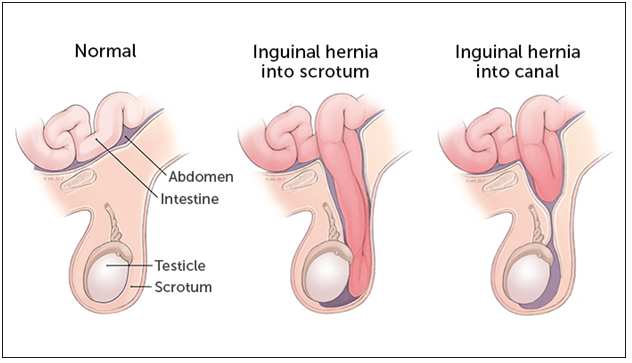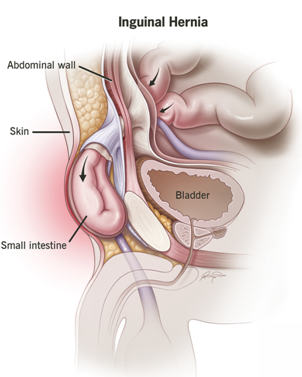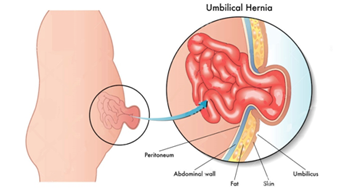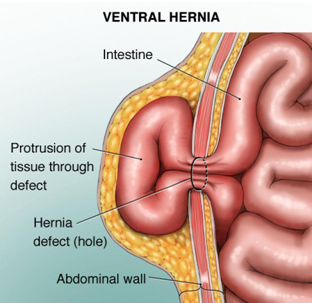
A Hernia occurs when the contents of a body cavity protrude out of the membrane in which they are normally contained through a weak spot in a surrounding muscle or connective tissue. Hernias by themselves may or may not produce symptoms as they are asymptomatic and can cause slight to severe pain.
A hernia does not get better with time, nor will it go away by itself (except very small congenital navel hernia).
It is seen that men are more prone to inguinal hernias than women because of basic differences in anatomy.
Surgery is the only way to cure a hernia as it cannot go away on its own. Now days, many types of surgical hernia repairs are available at a hernia treatment hospital in India. However, there is no guaranteed way to prevent getting a hernia or to prevent recurrence of a hernia







